Transforming an avenue in the tropics
What could a section of Calle 30 in the Colombian coastal city of Barranquilla look like in the year 2035? A group of 24 students from four departments at ETH Zurich and Universidad del Norte turned their attention to this question during an exceptional intercultural and transdisciplinary learning event supported by Innovedum.
Many medium-sized Latin American cities face major challenges: their populations and demand for resources are growing at unprecedented rates. One of these cities is Barranquilla, the fourth largest city in Colombia with over 1.3 million inhabitants. The port city has become one of the most important trading centres in Colombia and is growing at a rapid, chaotic pace.
Due to its growing prominence Barranquilla is currently participating in a programme by the Inter-American Development Bank which addresses sustainable urban development in emerging cities. This programme is also supported by the State Secretariat for Economic Affairs (Seco). The city on the coast of the Caribbean was therefore an ideal testing ground for students and tutors at ETH Zurich and Universidad del Norte Barranquilla, who were studying the urban development of a section of the city in their summer school programme "Avenues in the Tropics".
A transdisciplinary approach to a lively avenue
As part of the course, 24 students from the two universities focused on the current state and the possible future development of a section of Calle 30, a multi-lane avenue that stretches through the city and passes by the a lively city market of regional importance.
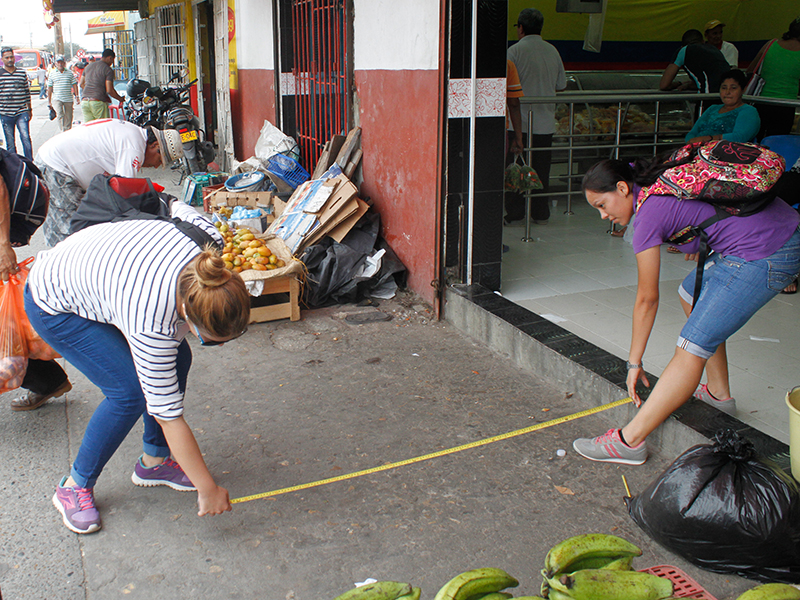
The students' first task was to familiarise themselves with the methodology developed by ETH Zurich's Transdisciplinarity Lab (TdLab) they then applied this approach on site to develop scenarios that envisioned how the avenue might be in the year 2035. The students presented their suggestions to local stakeholder groups such as public authorities, administrative bodies, development agencies and local economic partners. The stakeholders were then asked to assess, compare and contrast the scenarios in order to consider which one was a preferred vision for Barranquilla. These assessments then formed a basis for a discussion with decision-makers who will direct the future course of the city. According to Pius Krütli, co-head of TdLab, this final step was extremely important: "We hope these decision-makers will now have access to and be able to utilise academic insights more quickly and effectively."
Flexibility required
The summer school tutors describe one of the challenges to be overcome: "The situation in Barranquilla is light years away from what the students are used to in Zurich, which is clean, structured and orderly," says Alice Hertzog, research assistant for the chair of architecture and urban design.
This street is a microcosm of the city, encapsulating many of the challenges faced by Barranquilla as a whole: insufficient water and waste management, poorly maintained public places, unmanageable levels of congestion and, in particular, the informal use of pavements and side streets by informal traders. Among certain sections of the city's population, the street has the reputation of being a poorly managed market place and is avoided by the emerging middle classes.
Highly productive work groups
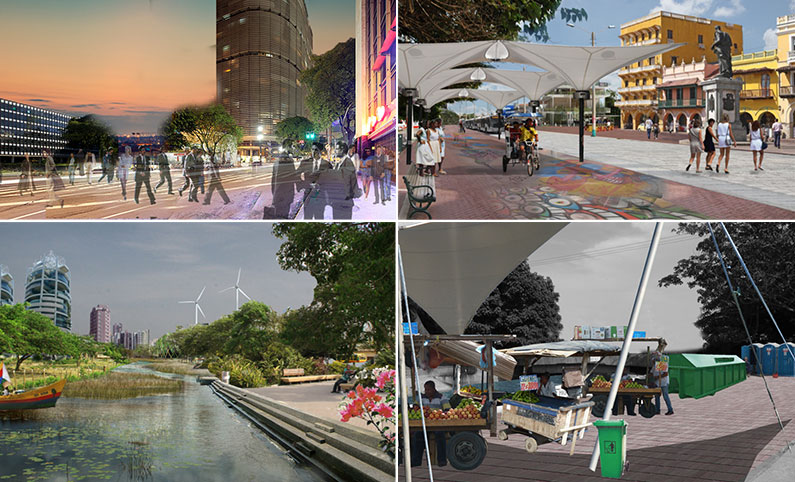
The ETH students formed groups with their counterparts from Barranquilla to assess the situation, and conducted interviews with traders, shop owners, vendors and residents. They also measured public spaces and monitored the flow of traffic. Based on this information, they cooperated with local experts to develop a methodologically sophisticated, structured course of action and draw up four scenarios for the future of Calle 30: one that placed particular emphasis on the development of green areas, one that focused more on the economic aspects, one that promoted Calle 30 as a residential liveable neighbourhood, and one that improved the street's present role as a marketplace.
Lasting impressions for all involved
Along with tutors Pius Krütli and Alice Hertzog, ETH Professor of Architecture Hubert Klumpner is extremely happy with the outcome of the summer school. Together with partner Alfredo Brillembourg, he was responsible for selecting Barranquilla as the case study after evaluating all of the possible sites. The methodological approach was new to Klumpner: "It was an experiment, because I wasn't familiar with the methodology developed by TdLab." In consultation with the representatives of TdLab, it quickly became clear to him that the methodology used in the case study is equally suited to urban development as a whole. "We usually develop variants like this in competition with one another. Participation by all of the stakeholders, regardless of profession or status, is central to the method developed by TdLab," explains Klumpner.
The students were also positive about the outcomes of the course. Elias Estermann, a Master student studying environmental sciences specialising in human-environment systems, is proud of what the group achieved in such a short period of time. In terms of learning experience, he was impressed by the fact that "our activities can have a real impact on real problems." According to Estermann, the local stakeholders were open to new approaches. In particular, he was impressed by the level of interest expressed by the students' final presentations. Senior representatives from political, economic and cultural spheres all took part, as did people from the local population.
Barranquilla to continue to receive attention
Estermann and three other participants now want to make Barranquilla the focus of their Master's theses. "One of the Colombian students was so galvanised by the course that at the end she said she wanted to become the mayor of the city to advance the current developments," says Alice Hertzog with a smile. The course also led to a promising collaboration with Universidad de Norte. Manuel Moreno, Director of the Department of Architecture, would like the partnership with ETH Zurich to be further expanded. Professor of Architecture Fabian Amaya is convinced by the methodological approach introduced by ETH, and plans to apply it in his architecture courses.
Students in the participating ETH departments can also look forward to new developments on the horizon: the organisers of the Barranquilla summer school will be offering another course in the summer of 2015. Thanks to the success of the school and the strong level of interest from the students, TdLab and the chair co-headed by Brillembourg and Klumpner have decided to develop a joint semester course.
Photo gallery Summer School Barranquilla
-
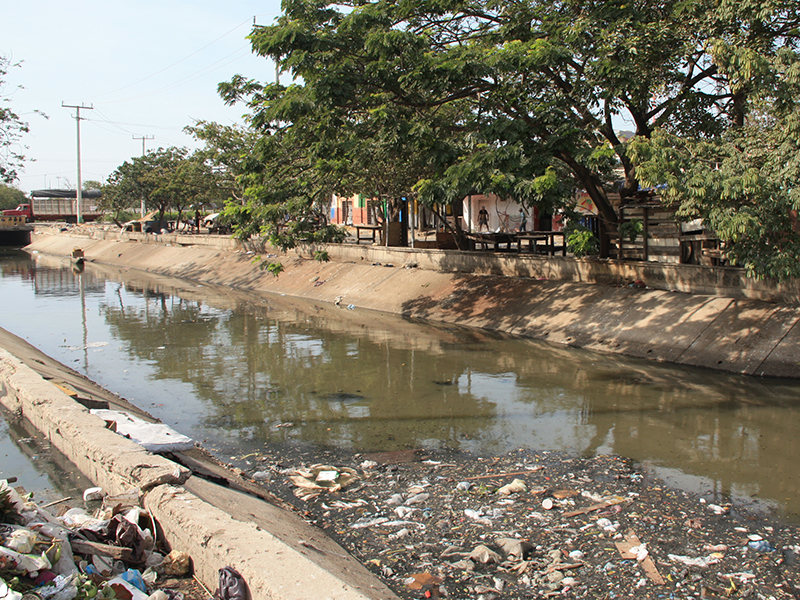
A highly polluted canal flows along the street. (all photos: provided by TdLab / ETH Zurich) -
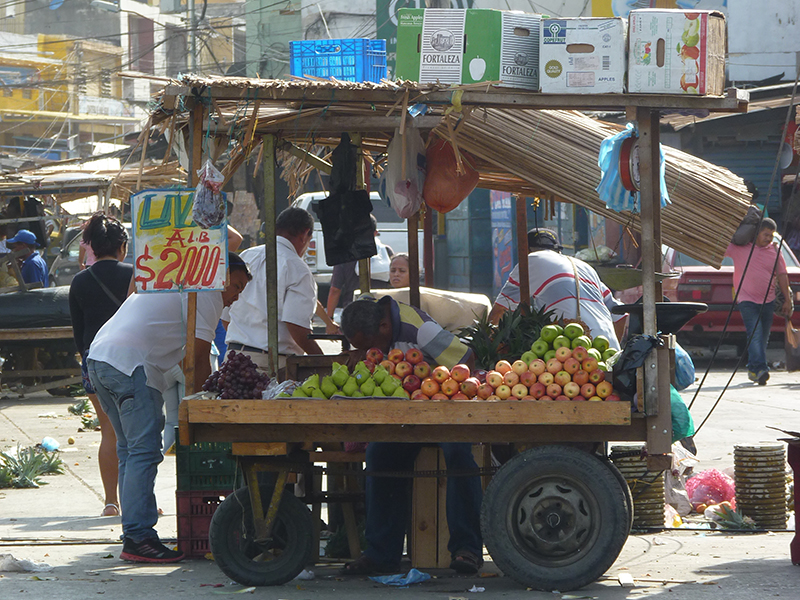
Informal trade flourishes along Calle 30. -
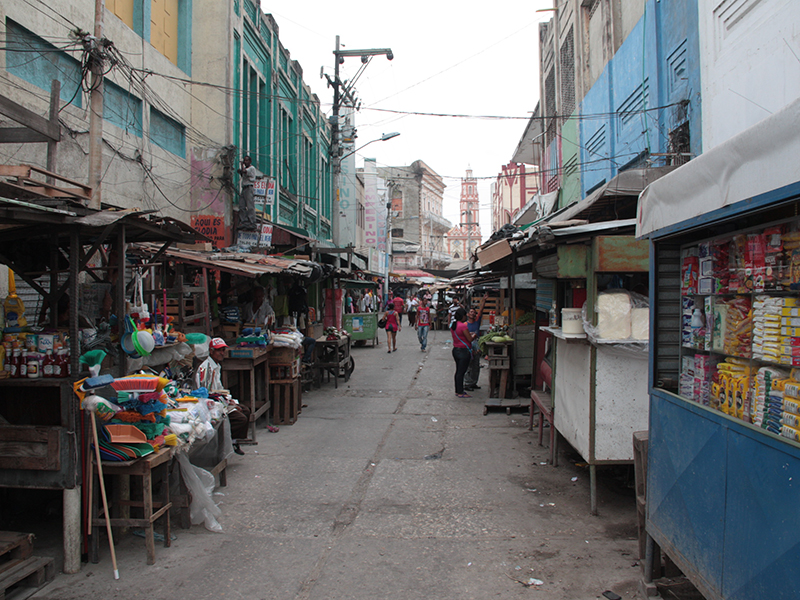
Legal and illegal market stalls in a side street. -
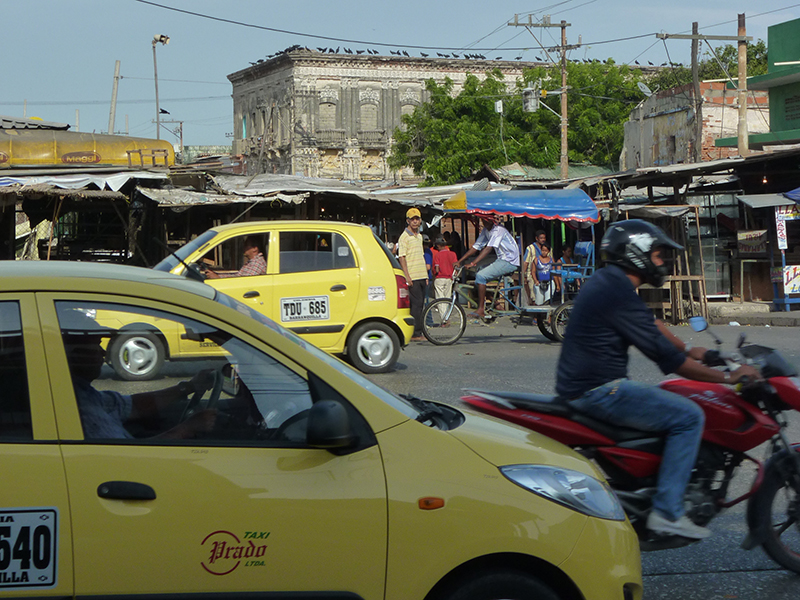
Traffic chaos is a daily feature of Calle 30.
Summer School Barranquilla
A summer school in Barranquilla focusing on urban development took place for the first time from 26 June to 11 July 2014. This course was developed by the Transdisciplinarity Lab (TdLab) in the Department of Environmental Sciences in cooperation with the Department of Architecture. The ETH participants were students and tutors from the departments of Environmental Sciences (D-USYS), Architecture (D-ARCH), Civil, Environmental and Geomatic Engineering (D-BAUG) and Mechanical and Process Engineering (D-MAVT). They were joined by students from Universidad del Norte Barranquilla. The organisers were supported by Innovedum, a fund established by the Rector to finance special teaching projects. The Educational Development and Technology (LET) unit at ETH and Peter Edwards, Director Singapore-ETH Centre (SEC), were also on hand to provide advice.
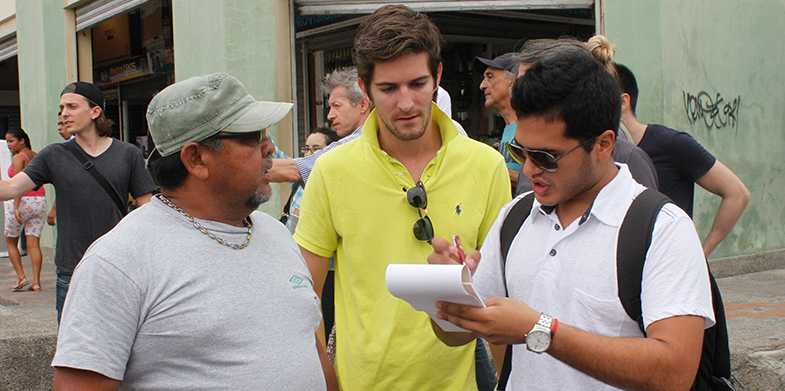
Comments
No comments yet